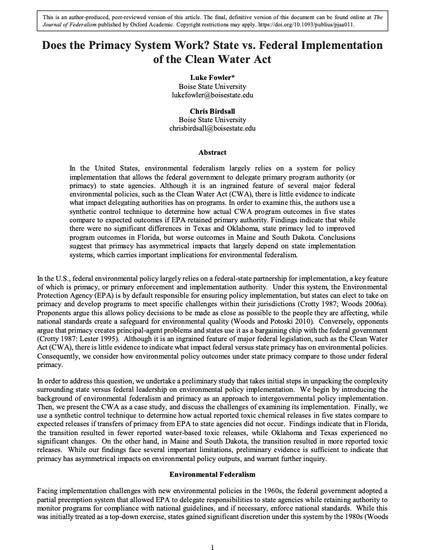
In the United States, environmental federalism largely relies on a system for policy implementation that allows the federal government to delegate primary program authority (or primacy) to state agencies. Although it is an ingrained feature of several major federal environmental policies, such as the Clean Water Act (CWA), there is little evidence to indicate what impact delegating authorities has on programs. In order to examine this, the authors use a synthetic control technique to determine how actual CWA program outcomes in five states compare to expected outcomes if EPA retained primary authority. Findings indicate that while there were no significant differences in Texas and Oklahoma, state primacy led to improved program outcomes in Florida, but worse outcomes in Maine and South Dakota. Conclusions suggest that primacy has asymmetrical impacts that largely depend on state implementation systems, which carries important implications for environmental federalism.
This is a pre-copyedited, author-produced PDF of an article accepted for publication in Publius: The Journal of Federalism following peer review. The version of record
Fowler, L., & Birdsall, C. (2021). Does the Primacy System Work? State versus Federal Implementation of the Clean Water Act. Publius: The Journal of Federalism, 51(1), 131-160.
is available online at doi: https://doi.org/10.1093/publius/pjaa011
Available at: http://works.bepress.com/luke-fowler/36/
